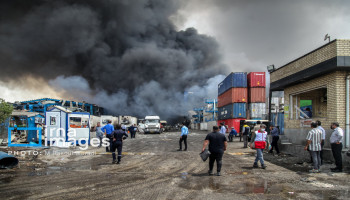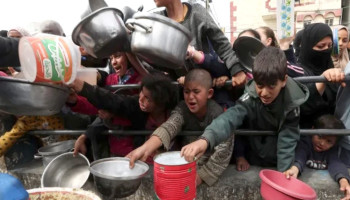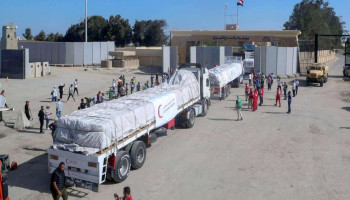With the rising tide of Islamic resistance operations in Lebanon against the Zionist enemy, coupled with supportive operations from Yemen and Iraq, the Israeli entity's economy is facing significant blows that may lead to its total collapse soon with Allah's support. The ongoing economic downfall is spreading across all major sectors of the Zionist economy, with no signs of recovery in sight. Additionally, reverse migration of capital owners, investors turning away from occupied Palestine, and the closure of tens of thousands of companies are all contributing to a continued spiral of economic decline that could afflict Israel for many years to come.
A recent report by the Associated Press on Monday shed light on what it described as "the costly economic losses" facing the occupation's economy. The American news agency confirmed that the ongoing aggression against Gaza and Lebanon, and the direct repercussions from operations by Hezbollah, the Yemeni armed forces, and Iraqi resistance, will ultimately force Israel to pay a heavy price. "Paying this bill," the report emphasized, "may impose difficult choices on Israel."
The report detailed the "painful financial losses" resulting from massive military expenditures, compounded by economic stagnation and a general growth contraction. Experts cited in the report stated that the entity will face "a decline in investment and an increase in taxes," as the strain of war depletes government budgets, forcing tough decisions between social and military programs.
Regarding rising taxes and prices, observers note that these trends are likely to fuel internal dissatisfaction among the settlers against the government of "Prime Minister" Netanyahu, particularly since Netanyahu has failed to find solutions to key issues, including the retrieval of the Zionist prisoners and reviving the operations of occupied ports, as well as the severe disruption across vital economic sectors.
According to the Stockholm International Peace Research Institute, the entity's military expenditures skyrocketed from $1.8 billion per month before the war began on October 7, to approximately $4.7 billion by the end of last year. The report noted that Israel spent $27.5 billion on its military last year, placing it fifteenth globally, just behind Poland, but ahead of Canada and Spain—both countries with larger populations.
The report highlighted the significant role of Hezbollah’s advanced operations, along with the actions of the Yemeni armed forces and Iraqi resistance, in exacerbating the occupation’s economic losses and further draining its resources. These operations have destabilized the Israeli entity internally, leading to a large-scale exodus of capital owners.
The Associated Press report stressed that fears stemming from these military actions have deterred investment in new projects, while disruptions in air travel have kept many visitors away, dealing a further blow to the entity’s tourism industry.
The resilience of the resistance and the effectiveness of supportive fronts are leading the Israeli occupation into what the report described as a "trap," with the war of attrition pushing the Zionist enemy closer to a humiliating defeat.
In conclusion, the Associated Press warned that Israel’s wars are exceedingly costly and will lead to severe, long-term consequences for its economy.








